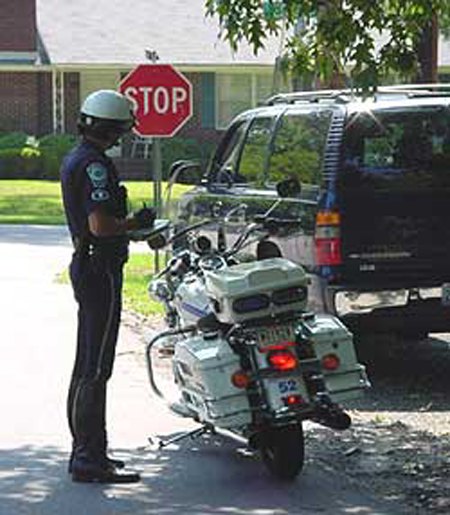Arizona Outlaws Warrantless Car Searches– Kinda
By a 3-2 vote, the Arizona Supreme Court ruled that Fourth Amendment rights prevent police from searching cars without a warrant– even after the driver has been arrested. The Tuscon Citizen quotes Vice Chief Justice Rebecca White Berch's majority opinion: "In this technological age, when warrants can be obtained within minutes, it is not unreasonable to require that police officers obtain search warrants when they have probable cause to do so to protect a citizen's right to be free from unreasonable governmental searches." Prior to the search in question, defendant Rodney Gant had been arrested for driving with a suspended license. Police found cocaine and drug paraphernalia in Gant's car. The Arizona Attorney General's Office's chief criminal appeals lawyer was not a happy camper: "If you arrest the driver, it's not clear when police can search the car and when they can't. Now there is no bright line." It seems this issue is headed back to the Supreme Court.
More by Robert Farago


































Comments
Join the conversation
Wow, a set of US Government officials who actually READ THE CONSTITUTION! You know... that document that they swear to uphold when they take office? It warms the cockles of my heart. --chuck
Robert, it's worth noting the specifics of that case. At the time of his arrest, the defendant had already left his car and was about 10 feet from it. That's a critical point that must be considered. The Supreme Court has previously held in New York v. Belton, 453 U.S. 454 that when a driver or passenger in a car is arrested in the car, the police can make a search of the entire passenger area of the car without a warrant and without further probable cause. The purpose of the search is to reveal any weapons or evidence that the suspect might have hidden in the moments before the arrest. In the same way, when a person is arrested at their home or some other location, the police are allowed to search the "grab area" within that person's reach for the same things. Final point, Carroll v. United States clearly says that the police do not need a warrant to search a vehicle on the highway. If they have probable cause they can search without the warrant. Chuck: The Constitution does not prohibit all warrantless searches. It prohibits unreasonable searches. These are not identical. A search with a warrant can be unreasonable if, for example, the warrant was issued without probable cause, or if the warrant was issued by someone other than a judge (such as a magistrate who also has prosecutorial powers.) OTOH, a search without a warrant can be reasonable, such as the arrest-search mentioned aboveor in the car-search exception from the Carroll case.
Where is the probable cause in this case? It's quite a stretch to go from arresting an individual for driving on a suspended license to searching for drugs. Was there paraphernalia that was within view? Did the driver's behavior indicate that he might be under the influence of a narcotic? Did he do anything that would give the officers any reason to believe he was armed and dangerous?
Quasimondo: He was arrested for driving on a suspended license, so that would be the only PC needed for the arrest. If the arrest was justified, then a Belton search would also be justified, if he was in the car when arrested. But that's the critical point and without reading the opinion I'd have to assume that may be the reason the AZ court said this went too far. Had they found the cocaine in his pocket as he was being patted down before being put in the car (searched for weapons), there would not be a court case because that search would absolutely have been legal, no matter what he was arrested for.